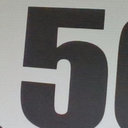Therapeutic effects of L-Cysteine in newborn mice subjected to hypoxia-ischemia brain injury via the CBS/H2S system: Role of oxidative stress and endoplasmic reticulum stress.
Ключові слова
Анотація
Neonatal hypoxic-ischemic (HI) injury is a major cause of neonatal death and neurological dysfunction. H2S has been shown to protect against hypoxia-induced injury and apoptosis of neurons. L-Cysteine is catalyzed by cystathionine-β-synthase (CBS) in the brain and sequentially produces endogenous H2S. The present study was designed to investigate whether L-Cysteine could attenuate the acute brain injury and improve neurobehavioral outcomes following HI brain injury in neonatal mice by releasing endogenous H2S. L-Cysteine treatment significantly attenuated brain edema and decreased infarct volume and neuronal cell death, as shown by a decrease in the Bax/Bcl-2 ratio, suppression of caspase-3 activation, and reduced phosphorylation of Akt and ERK at 72h after HI. Additionally, L-Cysteine substantially up-regulated NF-E2-related factor 2 and heme oxygenase-1 expression. L-Cysteine also decreased endoplasmic reticulum (ER) stress-associated pro-apoptotic protein expression. Furthermore, L-Cysteine had long-term effects by protecting against the loss of ipsilateral brain tissue and improving neurobehavioral outcomes. Importantly, pre-treatment with a CBS inhibitor significantly attenuated the neuroprotection of L-Cysteine on HI insult. Thus, L-Cysteine exerts neuroprotection against HI-induced injury in neonates via the CBS/H2S pathway, mediated in part by anti-apoptotic effects and reduced oxidative stress and ER stress. Thus, L-Cysteine may be a promising treatment for HI.



